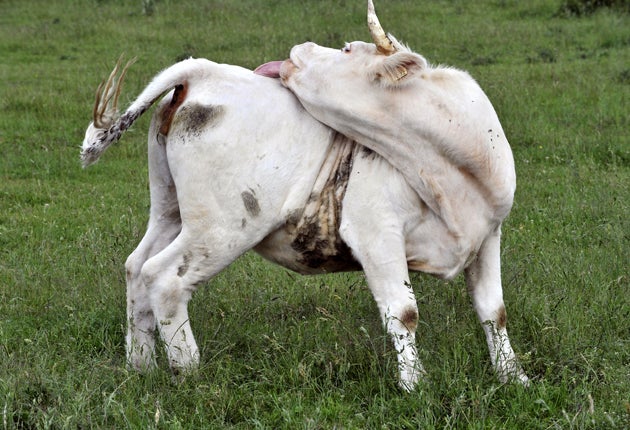
Your support helps us to tell the story
From reproductive rights to climate change to Big Tech, The Independent is on the ground when the story is developing. Whether it's investigating the financials of Elon Musk's pro-Trump PAC or producing our latest documentary, 'The A Word', which shines a light on the American women fighting for reproductive rights, we know how important it is to parse out the facts from the messaging.
At such a critical moment in US history, we need reporters on the ground. Your donation allows us to keep sending journalists to speak to both sides of the story.
The Independent is trusted by Americans across the entire political spectrum. And unlike many other quality news outlets, we choose not to lock Americans out of our reporting and analysis with paywalls. We believe quality journalism should be available to everyone, paid for by those who can afford it.
Your support makes all the difference.
What courses? Agriculture; agricultural science; agricultural engineering; animal management; land management; conservation; countryside management; rural studies; forestry and arboriculture; agri-business; farm business management.
What do you come out with? A BSc.
Why do it? "Agriculture is the study of the science and management of producing crops and animals. If you’ve heard people talking about whether there’s going to be enough food to feed the planet and it’s got you thinking about how you could help – agriculture’s the subject for you. You learn about how plants respond to their environment and how to manage crops to get the best yields. How animals grow and how their nutritional requirements change with growth. Agriculture is one of the few degrees that links science with business: you also learn how to market your produce and draw up business plans – often working in teams and participating in business competitions. The degree equips you for lots of careers and there is a strong job market for people with agricultural knowledge. You could be advising growers on how best to produce a good crop of bread-making wheat, doing research on how to reduce the impact of farming on the environment or running your own farm business. All this - and you don’t have to come from a farm to apply." - Dr Stephen Ramsden, associate professor in management and director of University Farm, University of Nottingham
What's it about? Farming, broadly speaking, although agriculture is an umbrella term covering a range of scientific and practical disciplines based on the cultivation of animals, plants, fungi and other life forms in order for the human race to survive and prosper (pretty important, really). Whether you’re interested in crops, animals, farm management or the marketing of farm produce, undergraduates have plenty of choice with around 20 higher education institutions offering agriculture courses in the UK. While general agriculture courses, such as Nottingham’s, give a wide-ranging insight into different elements of the industry, students can dedicate their degrees to specialising in specific areas such as agri-business, plant and soil science, dairy production, and animal health and welfare.
Study options: Three years study for a BSc on the whole, although some courses run to four. All of the Royal Agricultural College’s undergraduate courses include a six-month placement at the end of the second year, whether the overall course length is three or four years, while Harper Adams offers full sandwich years as part of its four-year courses. Nottingham gives students the opportunity to study a year at one of its partner institutions in Europe, leading to a Certificate in European Studies.
What will I need to do it? For more scientifically-focused courses such as soil science or ecology, you’ll usually need to have studied two sciences at A-level, and Nottingham asks for this for its general agriculture BSc as well. Work experience is often taken into account too, and Harper Adams ask that students complete 10 weeks before commencing the course. Grade requirements vary, but a typical offer from both Nottingham and Harper Adams is BBC to BCC. Many institutions offer HNDs and foundation degrees as alternative, and more vocationally-based, entry routes.
What are my job prospects? Farming is a massive industry, and, in its crudest sense, we’re always going to need to eat, so jobs will never run out completely. Agriculture graduates are scarce in relation to demand at the moment, and with increasing concern over food security and sustainability, it seems to be a great time for those with skills and knowledge to offer. Graduates find themselves in farm management, research and advisory work; and sales and marketing of agricultural products. More specialised students are likely to find themselves working in that area or consulting on the subject. According to The Times' Good University Guide 2012, 38 per cent of graduates walked straight into graduate-level jobs in 2009, with an average salary of just under £19,500.
Where’s best to do it? Nottingham came top over in the Complete University Guide 2012, followed closely by Reading and then Harper Adams, which also came second for student satisfaction, after Aberystwyth.
Related degrees: Biological sciences; chemistry; earth sciences; ecology; business and management; veterinary sciences; zoology.
Join our commenting forum
Join thought-provoking conversations, follow other Independent readers and see their replies
Comments